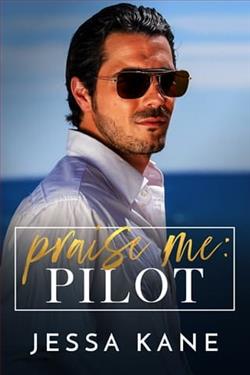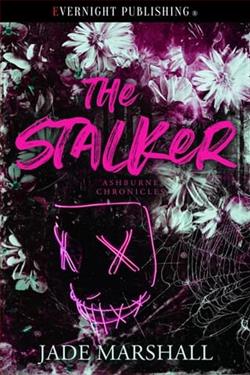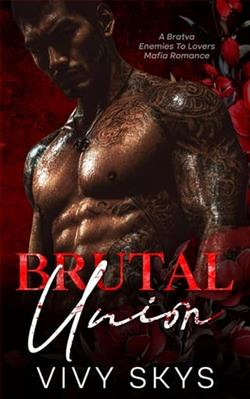Page 367 of The Hallmarked Man
He had no idea what effect the attack would have had on Rena Liddell, who deplored the influx of Islamists into Britain, and who’d made a half-hearted attempt to procure a gun, so she could shoot Muslims. He thought it likely that she wouldn’t turn up for their rendezvous at the Engineer at all. The effect of cataclysmic acts of violence on minds already unbalanced could, as Strike well knew, be catastrophic. He remembered the story told to him by an army medic friend, of a severely injured man who’d been in a state of paranoid psychosis, and appeared to believe he, personally, was causing buildings to blow up in Baghdad, even though he was lying in a hospital bed in Germany.
Strike parked his BMW in Gloucester Avenue, where the Engineer stood. The pub, he noted, was only a couple of hundred yards away from a bridge over Regent’s Canal. The sign over the pub’s door showed the top-hatted Isambard Kingdom Brunel.
Upon entering Strike found a stylish gastropub. The bar was of highly polished wood, the walls were of scarlet and the clientele all looked well groomed. There was no woman with a face tattoo, either inside or in the beer garden. Resolved to make absolutely certain, he returned to the bar.
‘My name’s Cormoran Strike and I was supposed to be meeting someone here. Has any message been left for me? A young blonde woman.’
The young barman looked slightly amused, for which Strike couldn’t blame him. Who left messages to be passed on by human beings, in a world where mobile phones existed? Didn’t this aged idiot realise he’d been stood up? But an older woman behind the bar looked round at Strike’s words.
‘Has she got a tattoo on her face?’
‘Yeah,’ said Strike.
‘It’s her,’ the barmaid told the barman. ‘That filthy one that started shouting.’
‘Oh,’ said the barman, clearly revising his opinion of Strike’s state of delusion, though apparently despising his taste.
‘I don’t think she’s very well,’ said Strike. ‘When was she here?’
‘Hour ago, something like that.’
‘Did she leave a message?’
‘No,’ said the barmaid. ‘She shouted something about a bridge, and then she left.’
‘Right,’ said Strike. ‘Thanks.’
He left the pub for the street again. What would Rena have done after fleeing the Engineer? Hitchhiked out of London? He looked towards the bridge over the canal; no blonde stood there.
He walked on, and when he spotted steps to his left leading down from the street to Regent’s Canal, he descended them with no very clear idea why he was doing it, except that his own natural impulse when close to a body of water was to go and look at it, but also because he was wondering whether Rena might have gone this way.
He emerged on a stretch of footpath running parallel with the sludge-green, slow-moving canal, so that he was standing between two bridges, one made of brick, for cars and pedestrians, the other of iron, bearing train tracks.
The evening light was fading fast. Shadows from the trees splayed patches of deeper darkness over the sluggish water. A single swan glided slowly towards Strike, its small dark eyes knowing. He watched it drift beneath the iron bridge, its pure white turning dirty grey in the shade, and then he spotted a dark, huddled mass beneath the bridge that he thought might well be human.
A jogger passed Strike, scowling because Strike had forced him to deviate a foot from his self-determined course. He ran past what looked like a pile of rags without glancing at it. This was London: unless people were screaming their distress and belonged to a demographic likely to evoke sympathy, and sometimes not even then, their fellow city-dwellers were too busy to stop and too tired to care. Strike knew this from personal experience. He was too large, too male and too menacing-looking to raise protective impulses in the breasts of passers-by, as he was aware from the universal suspicion with which he’d been treated when he’d fallen and been unable to get up off a city pavement, on the occasion when his hamstring had packed up completely.
Strike approached the figure slowly. It was curled up in the foetal position, silent and unmoving, beside a bulging rucksack. The filthy hands resting on the top of the dirty blonde head were clutched there, covered in self-inked tattoos. It was small; definitely not male.
‘Rena?’ he said quietly.
She looked up. Even in the gloom of the sheltering bridge he could see her complexion was unhealthily pale and spotty. She had an ugly herpes sore on her lower lip, and a blurry tattoo of a tear beneath her right eye.
‘I’m Corm—’
From start to finish, that morning’s terror attack had lasted eighty-two seconds. This happened far faster, but Strike’s reaction was all the quicker for having so recently been near mass murder. He’d seized her thin wrist before his conscious mind knew he’d seen the muzzle of the gun, he pointed it upwards, his other hand prising it from her grasp; she screamed and beat him on the legs with her free fist, her voice echoing around the underbelly of the bridge.
He fended her off, trying not to be rougher than he had to be, his nostrils full of the smell of her; it was as though she hadn’t washed in months.
‘It’s me – Cormoran Strike – you wanted to meet me – fuck’ssake,’ he said, catching hold of the hand doing most of the punching, ‘it’s me, you’ve been calling me for weeks!’
The sense of his words seemed to have penetrated: she stopped fighting and he let go of her at once, not wanting to be accused of assault. He looked down at the gun to check whether it was loaded, and saw at once it was a replica, and an unconvincing one at that. Shoving it into his pocket, he held out a hand.
‘Get up. You’ll catch your death of cold, sitting under here. We can get some food.’
‘Fuck off,’ she said fiercely. ‘Ah’m stayin’ here.’
‘Why?’















